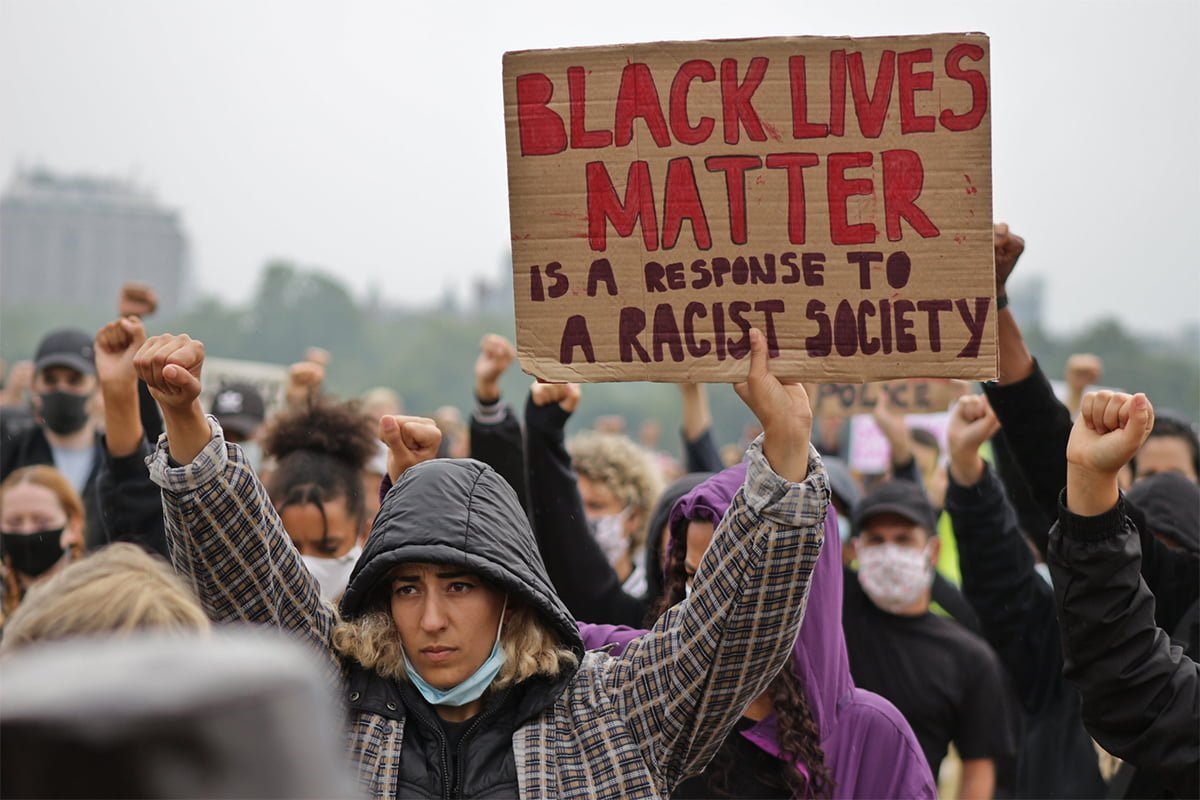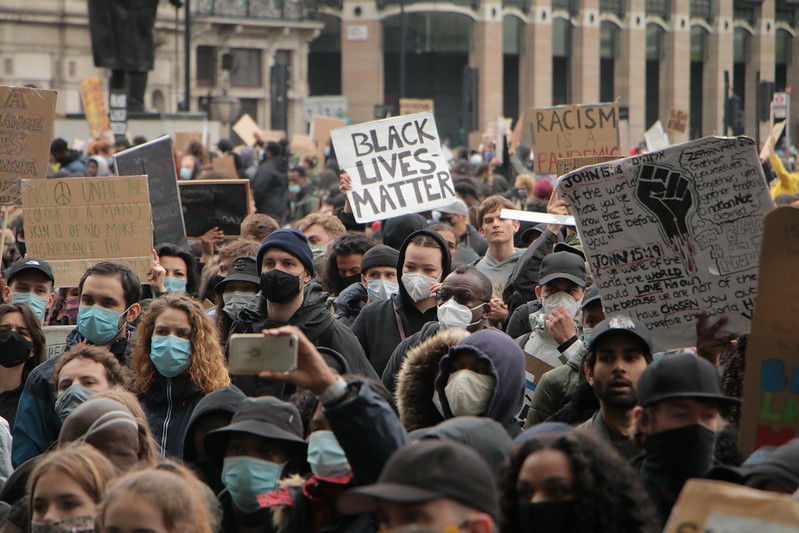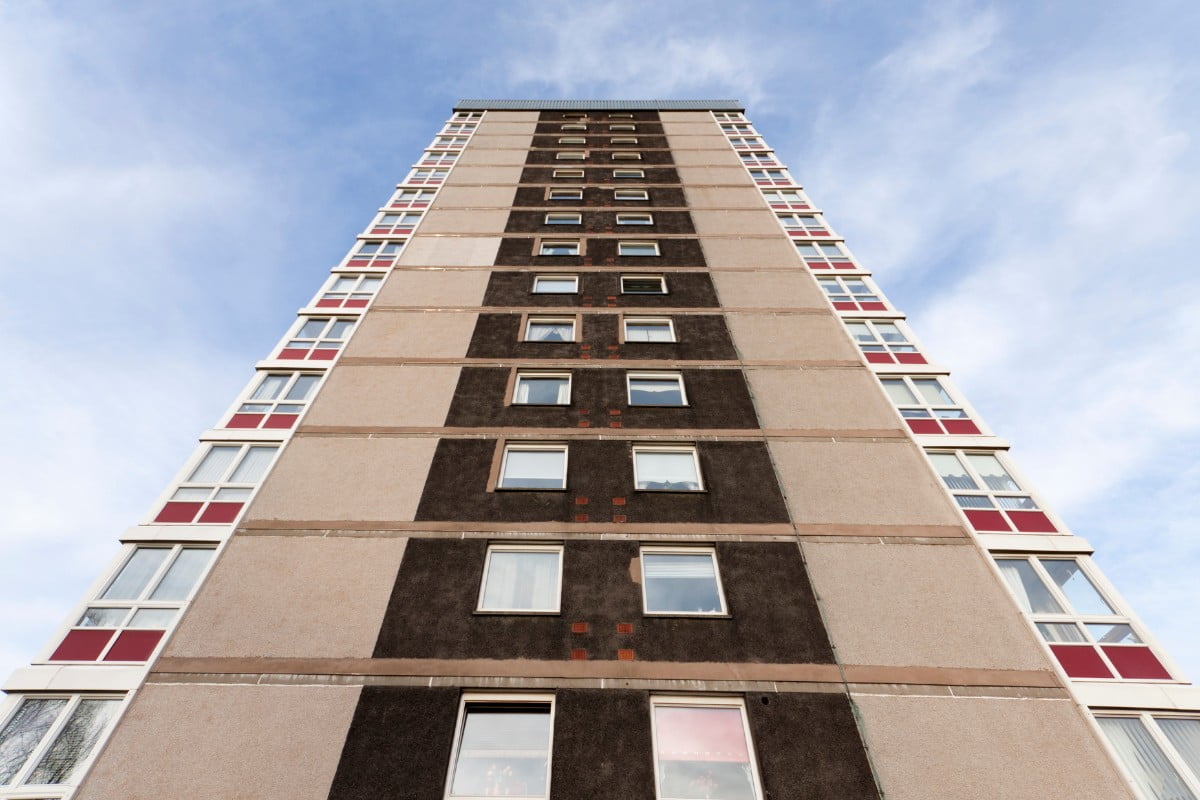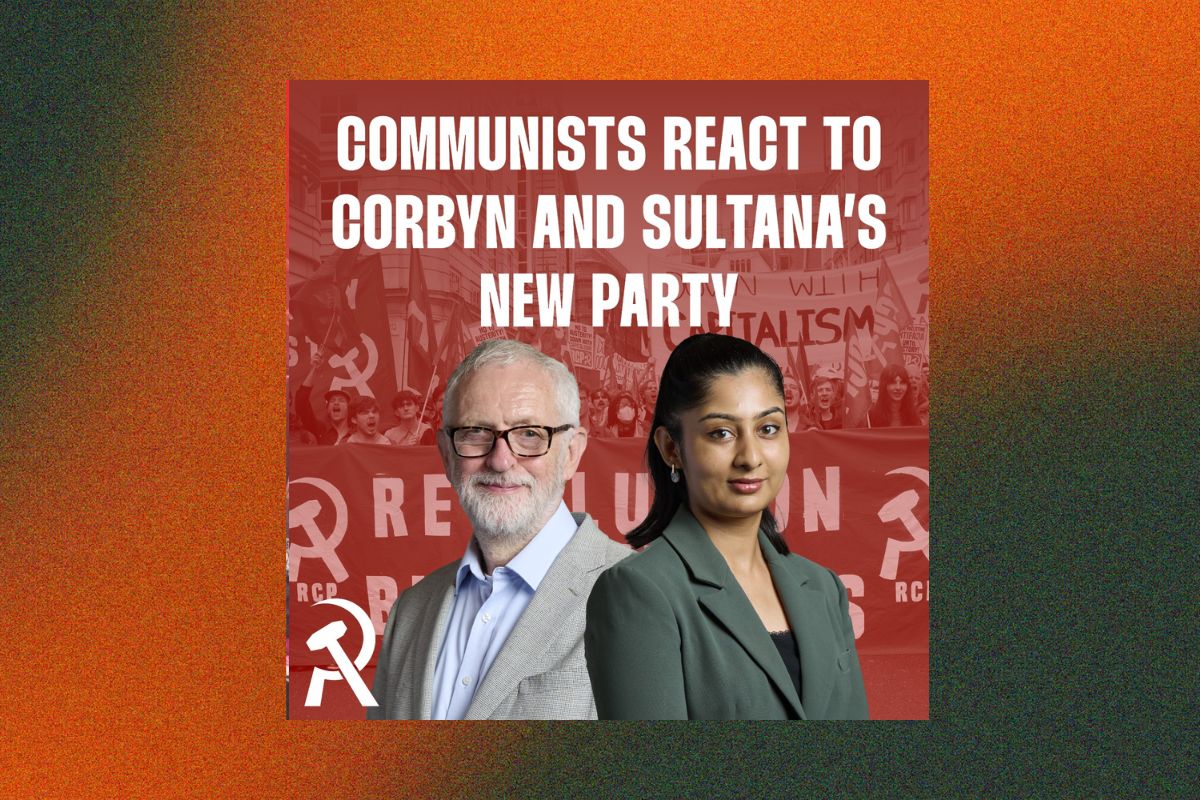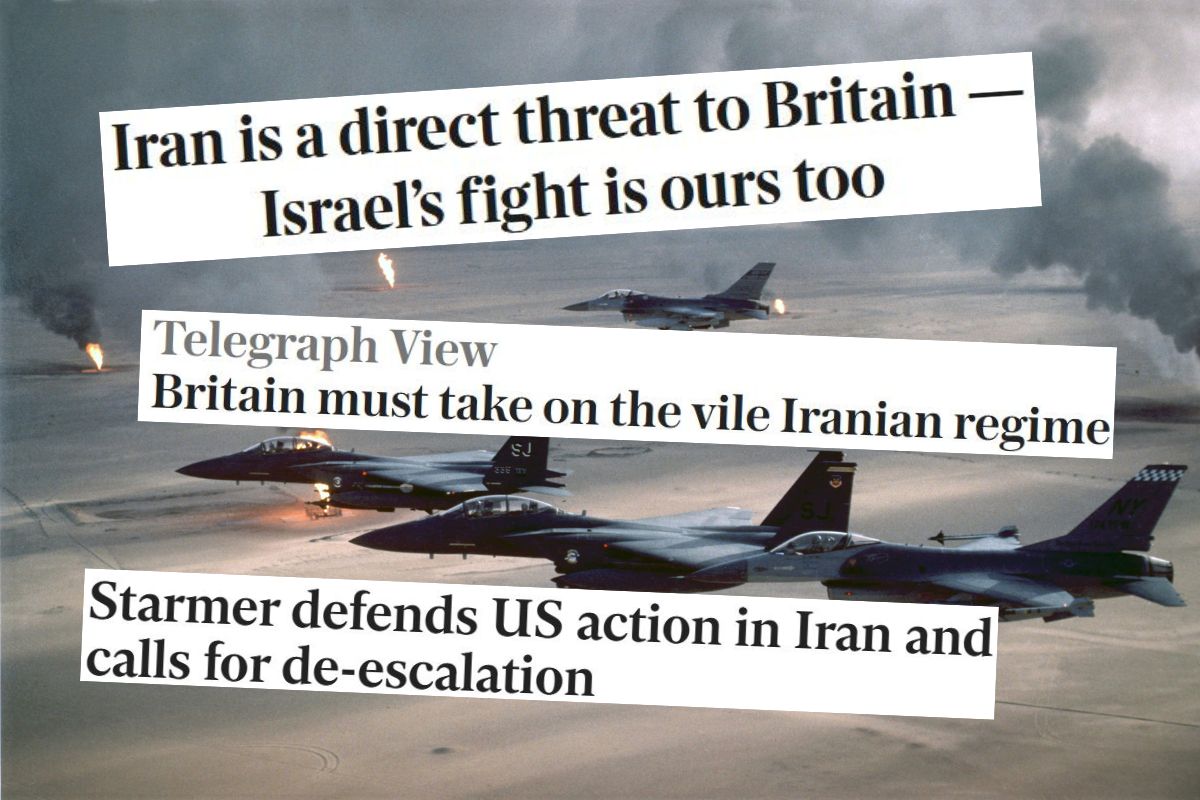Debates are taking place inside Black Lives Matter UK about how to take the movement forward. To advance the fight against racism, we need a united struggle based on class-based demands and a clear socialist programme.
Earlier this year, on 20 February, Black Lives Matter UK (BLMUK) hosted a discussion on the online platform Clubhouse. The premise of the event was to allow people to ask questions to BLMUK organisers, and find out more about the organisation since its launch.
Last summer, BLMUK (not to be confused with blm.uk, a smaller group) found itself accidentally pushed to the forefront of the massive BLM protests. Although the group has existed since 2016, it was previously a loose network of activists – some in academia, and some in full-time work.
After then launching a GoFundMe page, they suddenly amassed a huge sum of donations, amounting to over £1 million.
Although many other groups were involved with last summer’s protests, BLMUK had the name, the money, and subsequent media attention. They have since become the largest political apparatus for anti-racism activism in the UK.
Opaque
Frustrations with the group quickly arose, however, as it took a long time for organisers to come forward explaining who exactly they were, and where the money would go.
Having now officially launched – over a year later – they have announced what they intend to do with a portion of their funding. £600,000 is being given out to various organisations, charities, and trade unions. More announcements are said to come regarding the rest of the money.
To this day, however, exactly who is running the organisation still isn’t clear. Some in the group do not wish to be publicly known, due to fear of potential harassment and attacks from the far right and the state.
It is undeniable that the matter of security must be treated seriously. Nevertheless, we must assume that the capitalist state, with all the tools at its disposal, is able to find out any information it needs. It is impossible to imagine that the state doesn’t know – or couldn’t find out – who is running the group.
The problem with anonymity is that it stifles internal democracy and open political debate. The best way to defend against harassment is by building a powerful movement with roots in the communities and in the labour movement.
To build this, however, you need transparency and democracy; and most importantly, an open discussion about the political programme and direction of the movement – something which at the moment is decided behind closed doors by unaccountable, unelected individuals.
Structure
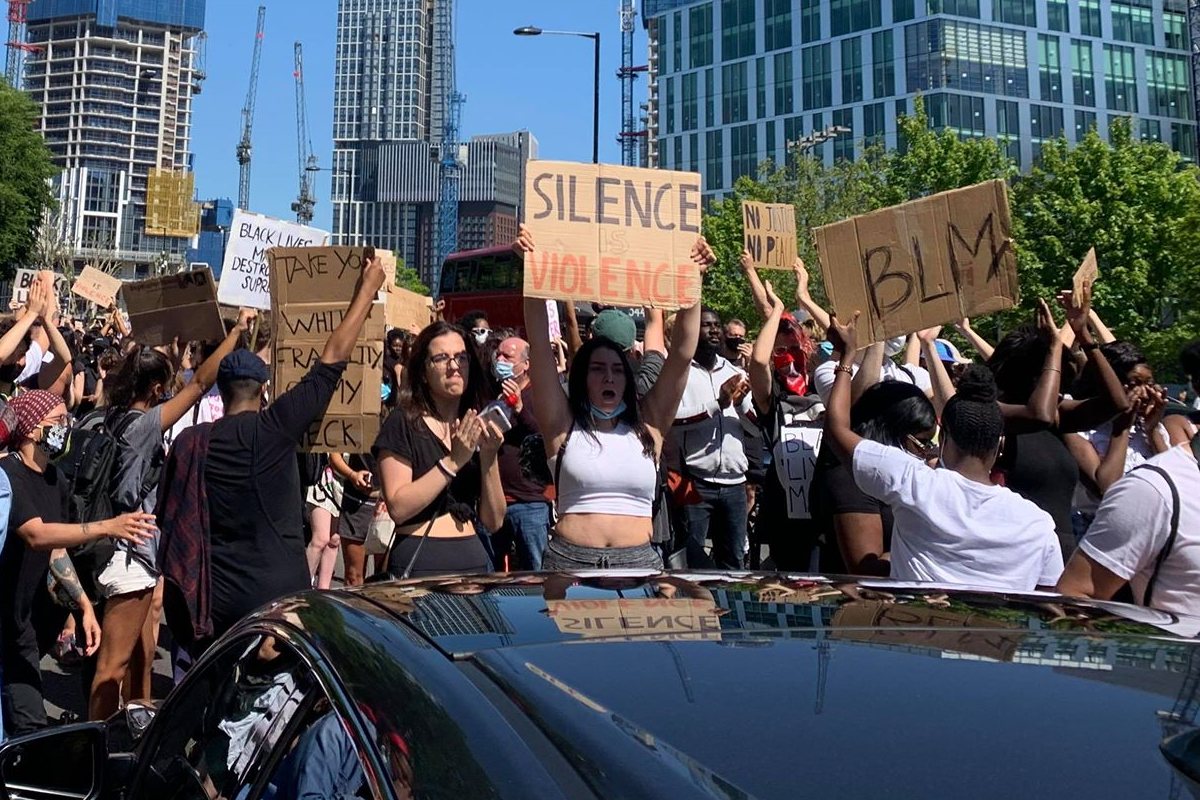 Some time ago, the BLMUK website invited activists to ‘apply’ for membership. But that has since changed. Indeed, on their current website they describe themselves as a ‘member-led anti-racist organisation’. But there is no clear information on how to join, or what membership actually entails.
Some time ago, the BLMUK website invited activists to ‘apply’ for membership. But that has since changed. Indeed, on their current website they describe themselves as a ‘member-led anti-racist organisation’. But there is no clear information on how to join, or what membership actually entails.
What this suggests is that there is a tight-knit group of people who run the organisation, who at this stage are unwilling to open it up. In the end, such methods will only lead to the organisation’s downfall.
In fact, during the recent Clubhouse event, the question was directly asked: “Will you have democratic elections for the leadership at some point?”
The organisers responded to this by saying that they currently work via “consensus-based decision making”; and that “at the moment elections are not possible, but it might be something we consider if the group expands.”
By not forming a proper structure, the group is limiting itself from the offset. If they opened up, they could draw in committed class-fighters and organisers from the ranks of the labour movement.
They could then take on the important role of reintroducing anti-racist struggles into the labour movement, whose leaders have for years neglected these.
So how can one join BLM? It remains to be seen if the organisers want this to happen.
Roughly 200,000 people are said to have come onto the streets during the protests last summer, making these protests the largest anti-racist movement in the UK since the abolition of slavery.
If the organisers were to use the money raised by this movement to form a genuine organisation, then thousands of people would surely join, allowing activists to democratically decide its aims and goals.
Which way forward?
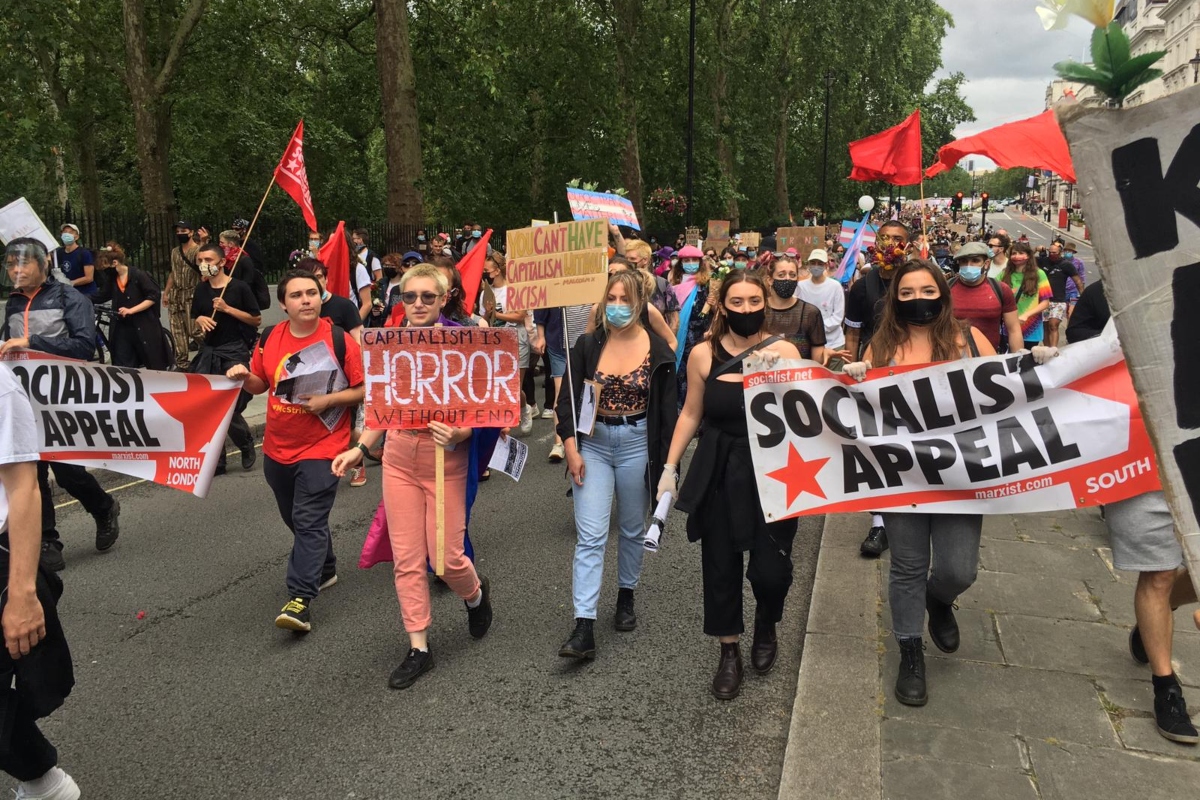 It is clear that BLMUK has different currents running through it. A number of those involved consider themselves Marxists. The leaders, however, regularly insist that while individuals may be Marxists, they are not a Marxist organisation.
It is clear that BLMUK has different currents running through it. A number of those involved consider themselves Marxists. The leaders, however, regularly insist that while individuals may be Marxists, they are not a Marxist organisation.
This influence of Marxist ideas can be seen in some of the group’s output. Their Twitter page has shown international solidarity for various movements. This raises the perspective of a united struggle of workers and the oppressed, regardless of their skin color, religion, gender or ethnicity.
But there are also others in the movement who oppose such a line. In fact, one tweet in support of Palestinian liberation outrageously received backlash from some supporters of BLM, who claimed that the page should limit its support to black causes alone.
This scandalous act reveals the dangers facing the movement.
Racism and nationalism is a means by the ruling class to divide workers and the poor – pitting white against black, British against non-British, and so on.
The ruling class tells us that there is a fundamental difference between people of different colours. Our task is precisely to expose this lie as a sham, used by the establishment to distract from the fact that it is they – the capitalist class – who are the real enemy.
This is a means for the ruling class to maintain power and to continue its profiteering at the expense of everyone else.
Those who oppose showing solidarity with Palestinians, therefore, are essentially accepting the premise of the ruling class – i.e. that we are fundamentally different.
Our task on the contrary, is to fight for the greatest amount of unity amongst the working class and the oppressed layers in society. We need to unite all the oppressed layers in society against the ruling class and the capitalist system, which is the root cause of all suffering in today’s society.
To their credit, BLM organisers have stood firm so far against some of these objections, as well as against those who wish to de-politicise BLM’s content.
During the Clubhouse event, direct questions were posed on why the group had not given money to black businesses. To this, the BLM organisers responded: “We didn’t agree to give money to profit-making organisations.”
What lies at the root of questions such as these are the class divisions within the movement. Is BLM a charity, a career path, or a political organisation?
In some respects, BLM has the potential to play a major role in the class struggle. But to fulfil this potential, it needs a clear revolutionary leadership, which links the struggle for black liberation to the wider working-class struggle for socialism.
However, the existing leaders appear to vacillate. This is because the movement’s leadership is still vague and divided. It is stretched between two incompatible tendencies.
One of these seeks to use BLM’s money and platform to promote black businesses, black organisations, charities, and programmes that work specifically for the advancement of black people alone.
On the other side, however, there are those that seek to push the movement in a more concentrated political direction – one that involves the class struggle. But this tendency must do more to win the debate and bring out clearly the irreconcilable class interests of the two wings of the movement.
Class struggle
 It is not at all true that all people of the same skin color have the same interests. Contrary to what the ruling class wants us to believe, ordinary white working-class people have nothing in common with white capitalists such as the Queen or Boris Johnson.
It is not at all true that all people of the same skin color have the same interests. Contrary to what the ruling class wants us to believe, ordinary white working-class people have nothing in common with white capitalists such as the Queen or Boris Johnson.
Likewise there are black workers and black capitalists; and the latter uphold the system that exploits workers.
Many of these businessmen and self-appointed ‘community leaders’ attempted to put themselves in the lead of some of the protests last year. In the process, they actively moderated the movement and its demands.
In some places, these ‘leaders’ tried to stop anti-Tory slogans being raised, claiming that the role of the protests was to appeal to the Tories to introduce reforms!
Part of the money given out by BLMUK was earmarked for the IWGB and UVW – small, militant trade unions, which are organising precarious workers. This is because some of the current organisers understand the intrinsic link between anti-racism and the class struggle.
For those who view BLM as a launch-pad to promote their own narrow interests, however, this caused upset.
Even donations to groups such as the United Friends and Families Campaign (UFFC) – which supports families of people who have died in police custody, prisons, and secure medical units – have also caused contention.
For some of those that argue BLM should be a vehicle for the advancement of black people only, the UFFC are seen as undeserving. This is because they support white families – as well as black and Asian families – who have seen deaths at the hands of the police.
What they want is for the BLM to become a vehicle for their own personal advancement, rather than an organisation fighting for the rights of all oppressed people.
In the same vein, since the IWBG and UVW organise beyond black workers, they are regarded by this layer as ineligible for their support.
Not only is this divisive and reactionary, but it is also a failed strategy. Black people make up 3% of the population in the UK. There can be no black liberation without the liberation of the entire working class.
Racism and capitalism
Racism is inherent in the foundations of British capitalism. It is a key lever for the ruling class to divide the working class and weaken it in the face of attacks on its living standards.
This is what lies behind the cycles of poverty, lack of access, to decent employment, and all other forms of dispossession that disproportionately impact black workers.
Only a united working class has the power to overthrow capitalism and implement socialism, raising the living standards of all.
Anything that increases division between workers is in the interest of the bosses and the establishment. After all, our strength as workers lies in our unity. Separating workers into different unions based on the colour of their skin is one of the surest ways to ensure defeat.
Let us imagine a strike by black workers only. This would not harm production or the bosses’ profits at all. But it would push white workers into the arms of the bosses, who would make them work twice as hard to make up for the lost production of the black workers.
Such a strike would be quickly defeated – a defeat which would weaken the whole workforce massively. Meanwhile, it would strengthen the position of the boss, who would no doubt go onto the offensive and use the division of the workers to drive down wages and conditions across the board.
This is essentially the idea put forward by those who say that money shouldn’t go to small, militant unions such as the IWGB, because they dare to organise beyond black workers. In reality, those who argue this case are simply on a different side in the class war. They should be exposed as such.
We must appeal to the organisers of BLM to open up, and let the movement democratically decide its goals. We need a political debate on the way forward, if we are to transform these protests into a mass movement capable of bringing about real, lasting change.
There are those of us who are fighting for socialism, and those who are fighting for black capitalism. In the struggle between these two tendencies, the future of BLM will be decided.

